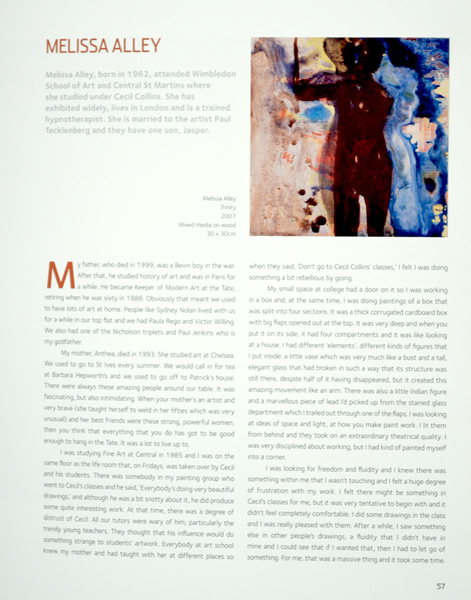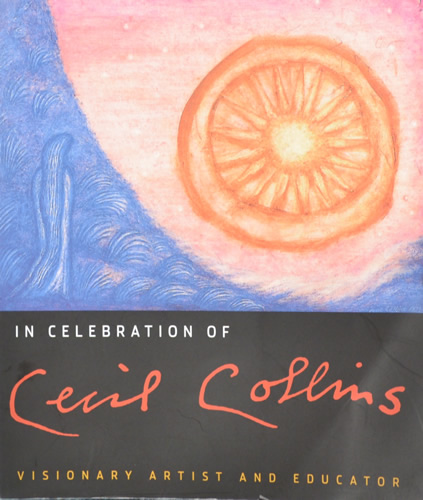Cecil Collins’ Teaching

I was very fortunate to have Cecil come to my college once a week to teach. I studied with him from 1985-1989 and the drawings in this section were made in those classes. His method chimed in with something that I was trying to achieve – a letting go to obtain something more sensitive than the conscious mind alone could achieve. His technique with its multiple “instruments” (Chinese brushes, quills, reed pens, red chalks, charcoal and pencils), combined with the use of left and right hand, mouth, foot, movement, music and a usual maximum of one minute poses, meant I would get confused and surrender my previous means of control. As Francis Bacon said in his interviews with David Sylvester
"They come over without the brain interfering with the inevitability of the image. It seems to come straight out of what we choose to call the unconscious with the foam of the unconscious locked around it – which is its freshness”.
I found the concurrent use of both hands very useful as it trained both sides of the brain – the left and right - to co-operate, creating a harmonious union of the analytical and intuitive. I enjoyed this alchemy of creating and communicating something in unexpected ways.

“I think that the mystery of fact is conveyed by an image being made out of non-rational marks.”F.B .
Through making these drawings, I got in touch with a desire to communicate the “other” whatever that may be; a sense of the timeless, the divine, the soul, the essence. Not from a religious perspective, but from a connection to the archaic, through memory, ancestry, the collective unconscious……. The Colour and Curve series was born from this and it was, I feel, more effectively communicated in the Loss paintings, leading into Manifestations, my current work.
N. B. It may seem strange to quote Francis Bacon in the context of Cecil Collins as they were spiritually and ideologically diametrically opposed. However, I studied them simultaneously, and found them both to have a similar concern with finding methods of accessing the subconscious.
Catalyst1986-1989